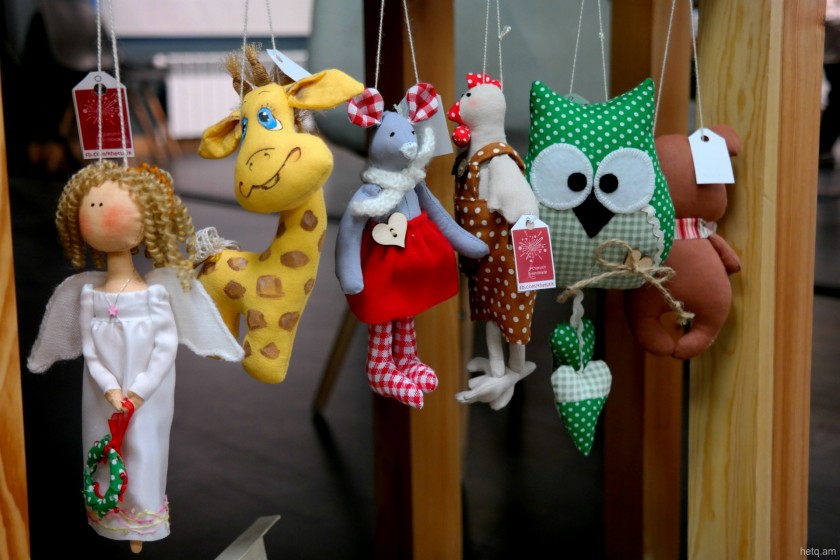
Maro the Doll Maker: Expanding Her Business Without Leaving the Armenian Village of Akhurik
Yeranuhi Soghoyan
I am introduced to a doll named Lilit. I secretly give her another name - Pepenik (“little freckle” in Armenian).
The red ribbon on her irregularly scattered curls makes a perfect combination with her dress and shoes, but that doesn’t mean that little Lilit-Pepenik is a glamorous girl.
"Our Lilit is very lively and straightforward, but, at the same time, she’s an ordinary girl," says doll maker Maro, laughing and taking out handmade dolls from the basket. Each of them has an interesting story of birth.

One by one, they are presented to me – Exupéry’s Little Prince with a fox, the girl with big and staring eyes from the famous Armenian cartoon “The Found Dream”, a traveler boy, Armenian man and woman in national costumes, a complete collection of white-dressed angels, a wise owl, a cock - symbol of the year.
"It's a pity Nounik is sold,” says Maro with apologetic voice. “It’s my daughter who chooses names. Our dolls have not only names, but also birth stories. We invent something for each of them, so that it’s interesting for the child. For example, Nounik is our only doll with a dowry. After making her, we decided that she should have some bedclothes. Many little girls like to put a doll to sleep. They like it when a doll has a nightgown, bed and bedclothes. They often make parents buy additional accessories for the doll. Thus, we decided to have a doll with a dowry, Nounik, who will look forward to moving to a new house.”
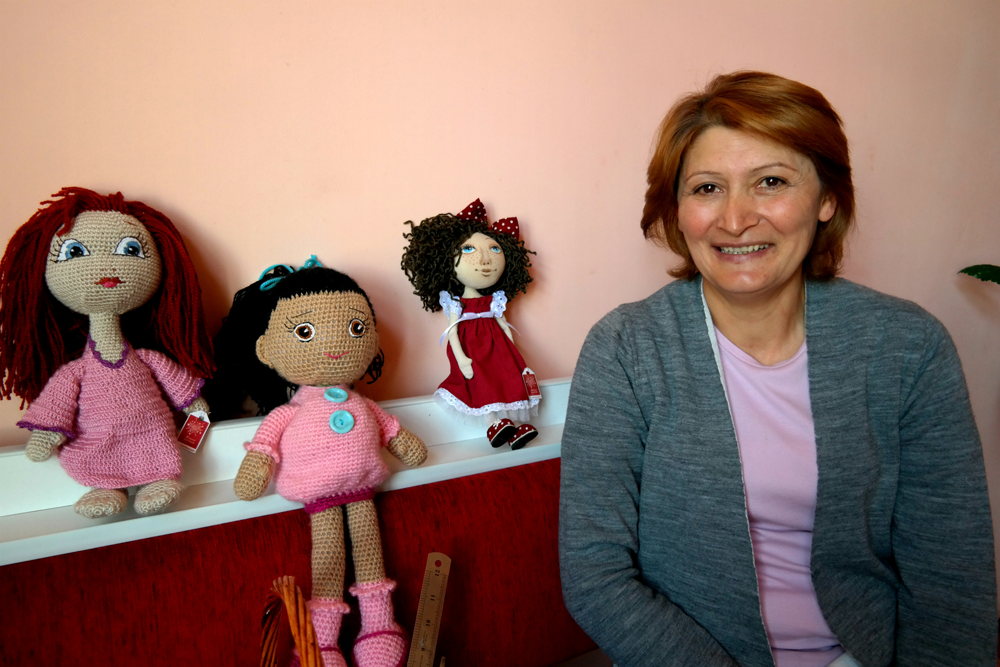
49-year-old Maro lives in Akhurik, a village in Armenia’s Shirak Province. She’s a mathematician, a graduate of Yerevan State University, Faculty of Applied Mathematics, Department of Automation Systems of Management. She’s never worked in her profession. She says, “The 90s were like that. Everyone did what they could.”
Maro was born in Artik and married off to Akhurik. She met her husband the year she was graduating from university. "It was such a big course, maybe a thousand students. Most of us didn’t know each other. We met in the fifth year and found out that we were studying at the same place," Maro laughs.
One of the possible reasons for not knowing others was not attending any entertainment spots. "My fellow students were running to different places of entertainment, while I was attending embroidery classes. In Yerevan, near the former Rosiya Cinema, there was a national masters house. I was attending classes there. There were all schoolchildren attending. I was the only older one there,” Maro recalls.

Love for sewing and embroidery is rooted in Maro's childhood. Her mother worked at a sewing factory in Artik. She learnt what she saw. She recalls being in a competition with a close friend for sewing doll clothes when she was 10-12 years old. There were 50-cent-dolls in the shops at the time. Maro and her girlfriend would buy the dolls and use their imagination to design, snip, and sew clothing for those dolls.
Marriage and having kids coincided with the difficult 90s. Maro didn’t have enough money to buy various toys for her girls. She made toys from old coats, worn jeans - giving birth to fantasy and fairy tale characters. Maro proudly shows the hedgehog she made in the 90s, which she’s kept until now. They sacrificed the fur collar of her sister-in-law's coat for making the "Thorn chainmail".
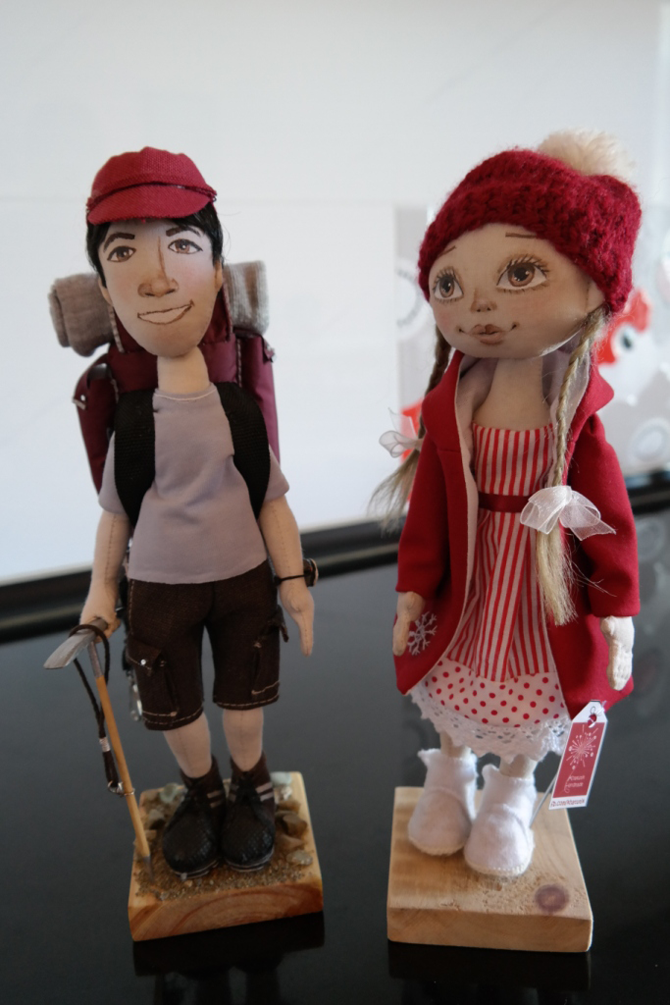 |
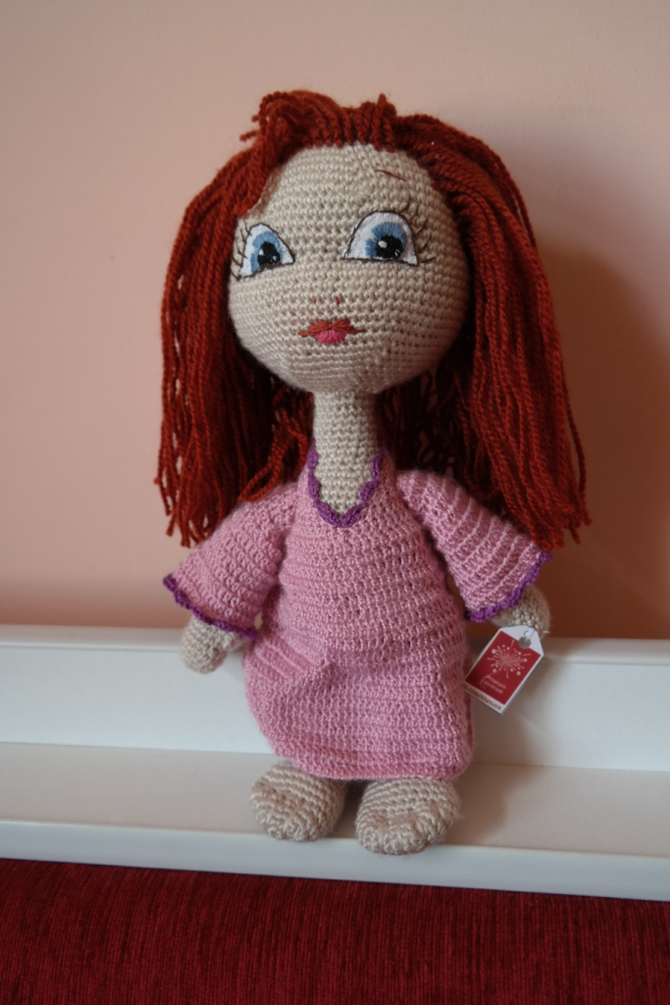 |
"Despite all this, I never thought that one day I would start making handmade dolls. We may call this my youngest daughter’s project. She’s a marketing expert by specialization. Last year she participated in marketing classes and had to present a business plan at the end. At that time, I crocheted a doll with help from the Internet. She came from Yerevan, saw it and suggested to write a business plan for me to implement, so that it became my small business. That was the start of this initiative, which she called Dandelion. That is the name of our Facebook page," Maro says.
Maro deals with the design, clothing, and haircut of the dolls. She even makes shoes for them. "I attended an art school for a year. It helps with drawing faces. I learnt sewing and crocheting a long time ago, then I learnt shoemaking," says Maro.

Great attention is paid to the choice of fabric. When they used worn jeans for clothing, buyers were dubious, thinking they were selling old, used, dolls. According to Maro, the more expensive and high-quality the fabric of the clothes, the more luxurious the doll looks.
She started paying even more attention to the dolls with national costumes after a Facebook user reprimanded them for using Turkish fabric. Now she tries to avoid using the products of the neighboring country. She’s started to make copycat dolls. People send their children's photos, based on which the dolls are made, adding some cartoon features.
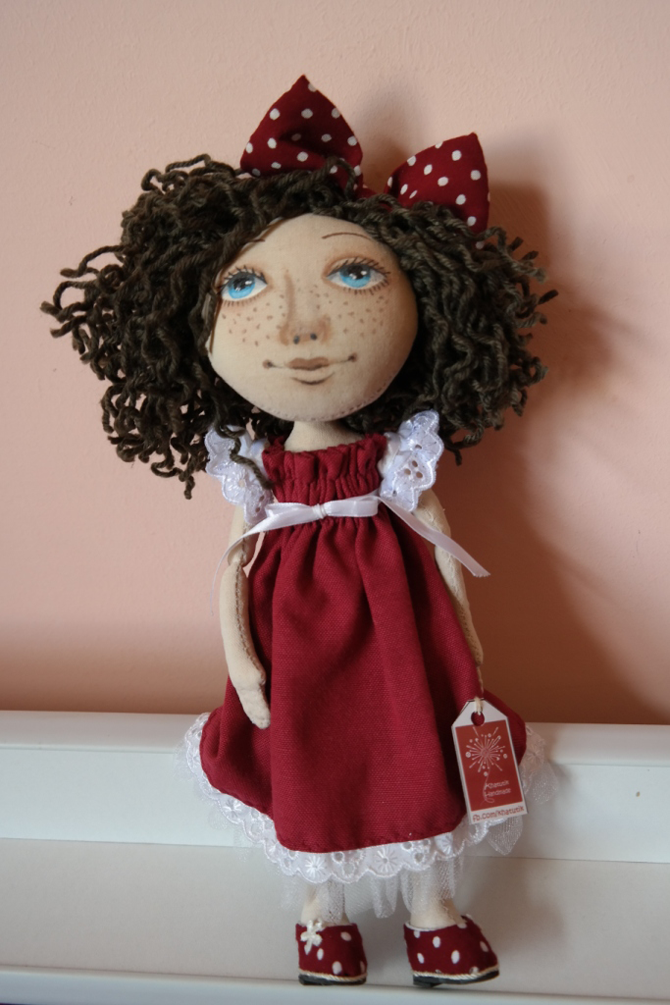 |
 |
With the help of her daughters, Maro is selling via the Internet. Selling in stores isn’t effective.
"We did an experiment in Gyumri. We gave four angels to the shop to sell. None were sold in one month, while we sold ten angels via the Internet at the same time. It’s not like we have so many products that we don’t know what to do with them. Whatever we create, we try to sell via the Internet," Maro says.
It’s easy for Maro to part with her dolls. She explains that she starts working on the dolls knowing this. She doesn’t intend to part with her first doll that now serves as a good-luck charm.
Their pricing policy is a combination of quality and affordability. They try to take into account the socio-economic conditions of people.
"When we started, we worked at a loss, because the first doll, which cost us around 10,000 drams, was sold only for 4,500 drams. But we had to accept it, because it was an order, and we had no idea how much was to be spent on that doll. Now we do normal calculations, so that nobody suffers – neither us, nor the customers. The copycat dolls are the most expensive, and the 10-12 cm size dolls are the cheapest. "
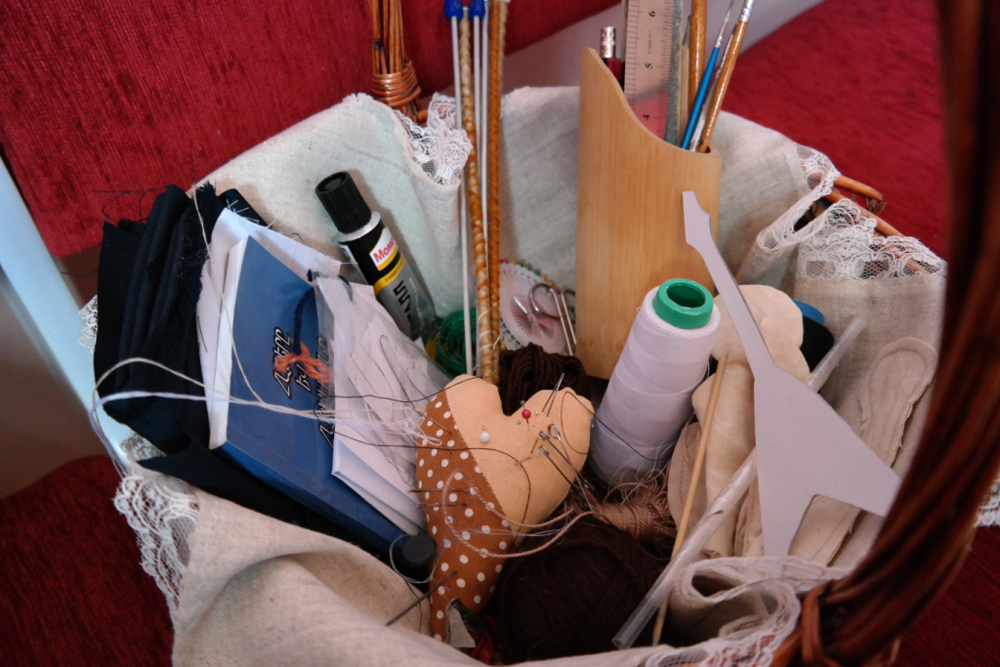
Currently, she’s working on an interesting idea. She’s named it Smart Books, targeted for children aged 2-4. She hopes to attract the interest of parents. Maro’s also preparing for the July festival in Gyumri, where she will present dolls with Armenian national costumes.
Maro says that now, a year after starting the business, she can confidently say that it’s possible to do what you like and do business without leaving the borders of Akhurik.
 Videos
Videos Photos
Photos




Comments (1)
Write a comment